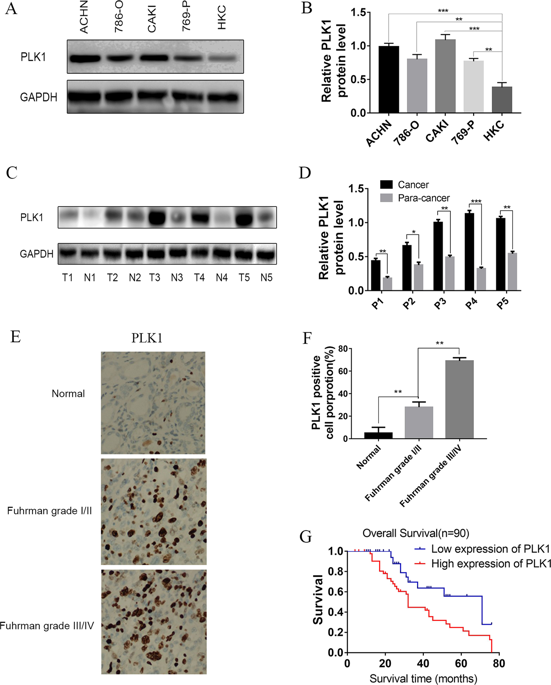Cancer Gene Therapy ( IF 6.4 ) Pub Date : 2019-06-12 , DOI: 10.1038/s41417-019-0094-x Zhipeng Gao 1 , Xiaojun Man 1 , Zhenhua Li 1 , Jianbin Bi 1 , Xiankui Liu 1 , Zeliang Li 1 , Jun Li 1 , Zhe Zhang 1 , Chuize Kong 1

|
Minichromosome maintenance 3 (MCM3) protein has been widely studied due to its essential role in DNA replication. In addition, it is overexpressed in several human tumor types. However, the role of this protein in renal cell carcinoma (RCC) is not widely known. In this study, we demonstrated that polo-like kinase 1 (PLK1)-mediated MCM3 phosphorylation regulates proliferation and apoptosis in RCC. Our results confirm that PLK1 and phospho-MCM3 (p-MCM3) are highly expressed in renal cell carcinoma. The expression of PLK1 is closely related to the clinical characteristics of renal cell carcinoma. They play important roles in the proliferation and apoptosis of RCC. In vitro, after overexpression of PLK1 or MCM3, the proliferation of RCC cells was significantly enhanced and cell apoptosis was inhibited, while after knockout, the proliferation of RCC cells was weakened and cell apoptosis was promoted. In addition, Mn2+-Phos-tag SDS–PAGE, western blotting, and immunofluorescence were utilized to determine that MCM3 is a physiological substrate of PLK1, which is phosphorylated on serine 112 (Ser112) in a PLK1-dependent manner. PLK1-mediated MCM3 phosphorylation promotes RCC cell cycle proliferation and suppresses apoptosis in vitro. Moreover, we found that PLK1-mediated MCM3 phosphorylation induced cellular proliferation and decreased apoptosis, as well as tumor growth in mice. Overall, we conclude that PLK1-mediated MCM3 phosphorylation is a novel mechanism to regulate RCC proliferation and apoptosis.
中文翻译:

PLK1通过磷酸化MCM3促进肾细胞癌细胞增殖并抑制细胞凋亡。
微型染色体维持 3 (MCM3) 蛋白因其在 DNA 复制中的重要作用而被广泛研究。此外,它在几种人类肿瘤类型中过表达。然而,这种蛋白质在肾细胞癌 (RCC) 中的作用并不广为人知。在这项研究中,我们证明了 polo 样激酶 1 (PLK1) 介导的 MCM3 磷酸化调节 RCC 的增殖和细胞凋亡。我们的结果证实 PLK1 和 phospho-MCM3 (p-MCM3) 在肾细胞癌中高表达。PLK1的表达与肾细胞癌的临床特征密切相关。它们在肾细胞癌的增殖和凋亡中起重要作用。在体外,PLK1或MCM3过表达后,RCC细胞增殖明显增强,细胞凋亡受到抑制,而敲除后,RCC细胞增殖减弱,细胞凋亡增加。此外,锰2+ -Phos-tag SDS-PAGE、蛋白质印迹和免疫荧光用于确定 MCM3 是 PLK1 的生理底物,其以 PLK1 依赖性方式在丝氨酸 112 (Ser112) 上磷酸化。PLK1 介导的 MCM3 磷酸化在体外促进 RCC 细胞周期增殖并抑制细胞凋亡。此外,我们发现 PLK1 介导的 MCM3 磷酸化可诱导细胞增殖并减少细胞凋亡以及小鼠的肿瘤生长。总体而言,我们得出结论,PLK1 介导的 MCM3 磷酸化是一种调节 RCC 增殖和凋亡的新机制。


























 京公网安备 11010802027423号
京公网安备 11010802027423号